In early March SiX hosted nine Nevada state legislators in northern Nevada for a tour with farmers and ranchers who are creating local jobs and increasing their community’s resilience through local foods and sustainable agriculture.
During the tour, it was noted that this trip marked the first time since the mid-nineties that Southern Nevada legislators in their official capacity visited Churchill County, a county known for its agriculture industry.
In partnership with the Fallon Food Hub, the bus tour introduced policymakers to four separate producers in the area who are employing unique practices and creativity that center sustainability while caring for their community and climate.
Legislators visited a regenerative hemp producer who is centering soil health in his system, a local dairy that has moved to bottling their own milk and making cheese, whiskey distillers that grow their grains on site, and a local seed producer who is changing the ideas of what can be grown in a desert. Tribal members from the Walker River Paiute Tribal joined the tour and spoke about what it has been like to feed their community during the Pandemic through a food pantry and indigenous food sovereignty program.
Legislators came away from the day with a more comprehensive understanding of issues facing rural communities in Northern Nevada. They also deepened connections with farmers and advocates. From conversations and having the opportunity to see production in person, legislators also began collaborating on ideas for policy that supports and grows Nevada’s rural communities.
Marrying hemp & regenerative agriculture
Hemp is known as an eco-friendly plant that has a number of uses including CBD products, fiber, and building materials. Western States Hemp is leading the discussion and visioning for what regenerative hemp agriculture can look like by incorporating pollinator – friendly cover crops, and grazing animals into their system. This adds another layer of eco-friendly opportunities that hemp production can provide.
Though hemp producers face a variety of challenges due to federal regulations, state policymakers can still support hemp producers. State policy that expands the window for federally regulated THC concentration testing to thirty days provides farmers with more flexibility. Additionally removing policies such as high fees for licenses or barring individuals with possession records from obtaining licenses helps increase equity in the hemp industry. If you are a state policymaker that is interested in working on hemp issues please reach out to us at [email protected]
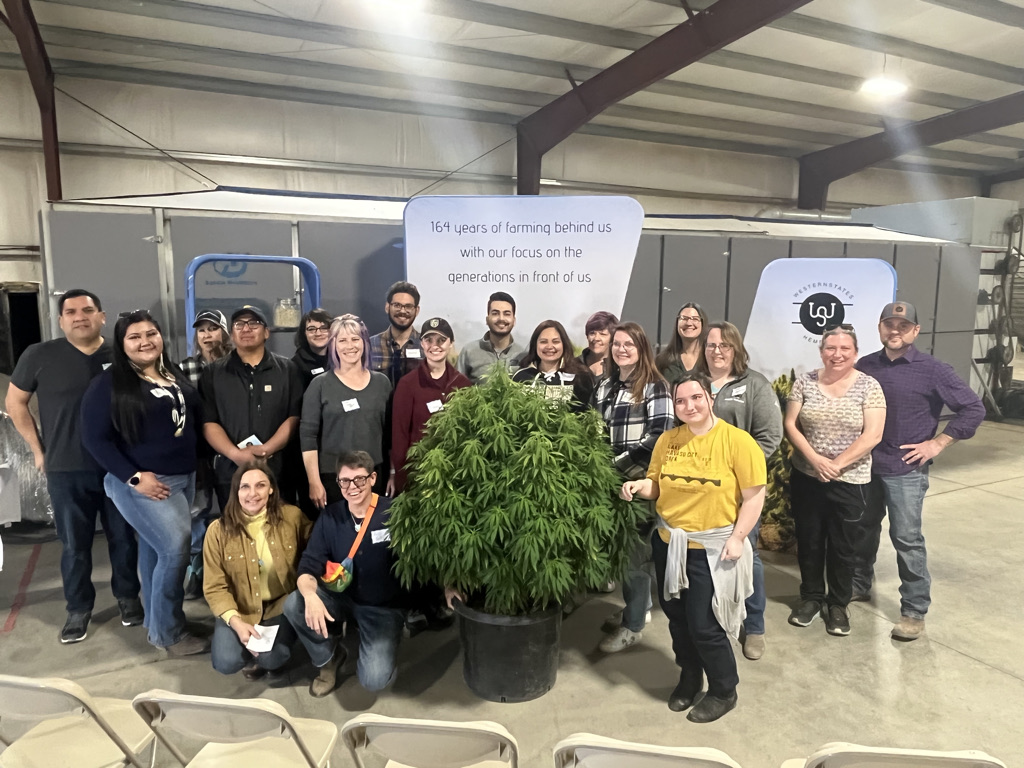
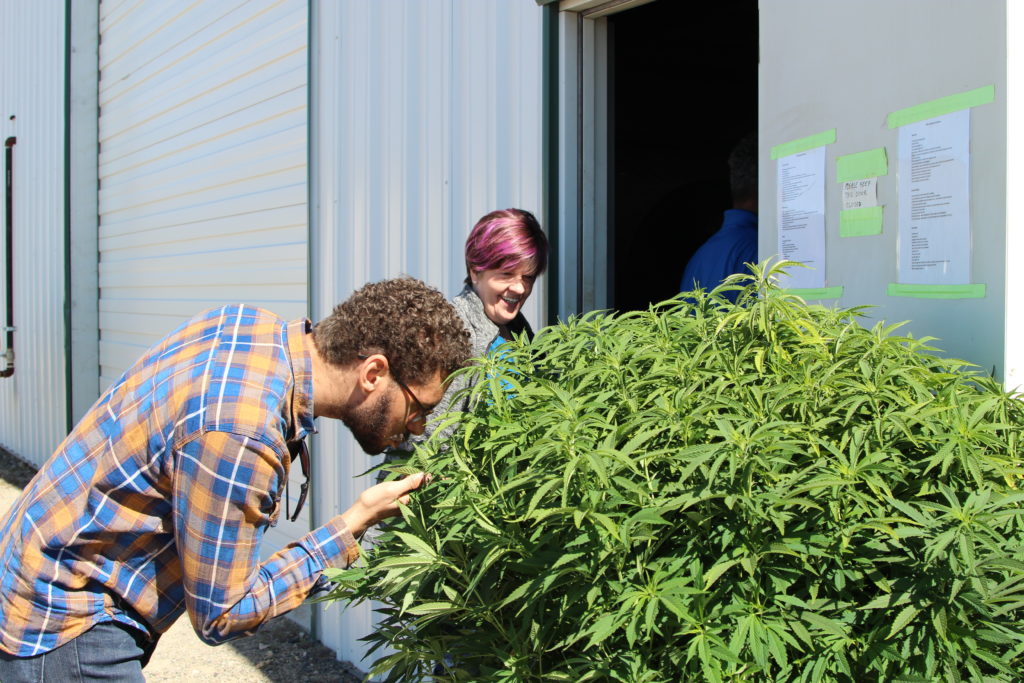
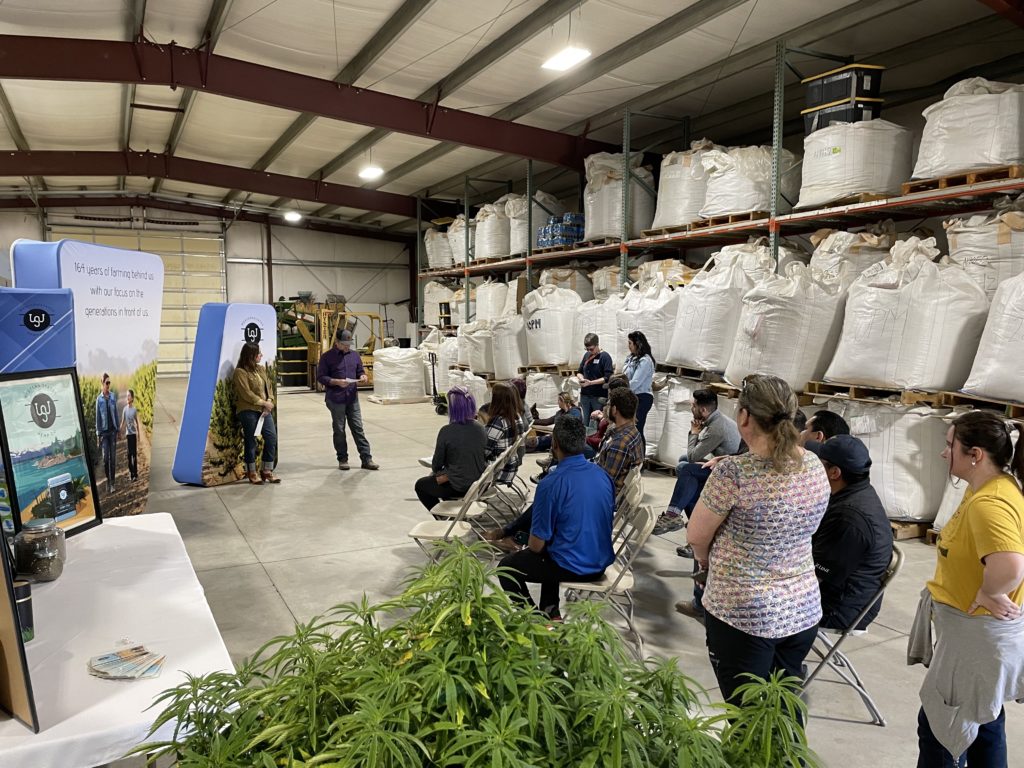
Opting out of the milk pool
At Sand Hill Dairy, a small dairy on the outskirts of Fallon, Nevada, Legislators spoke with dairy farmer Isidro Alves, who was producing his own milk and cheese on site.
Isidro’s approach to producing milk has turned him from “price taker” to “price maker” on his Nevada dairy. Many conventional dairies sell into the milk pool, retrieving a price for their product that is determined far from the farm through a milk pricing index set by commodity boards monitoring supply and demand. Due to this milk-pricing structure, many dairy farmers are receiving less for their milk than it costs them to produce it. By opting out of the milk pool, bottling his own milk and making his own cheese, Isidro is able to sell his product to local stores and set a price that is fair for the farmer and while providing families with locally produced milk.
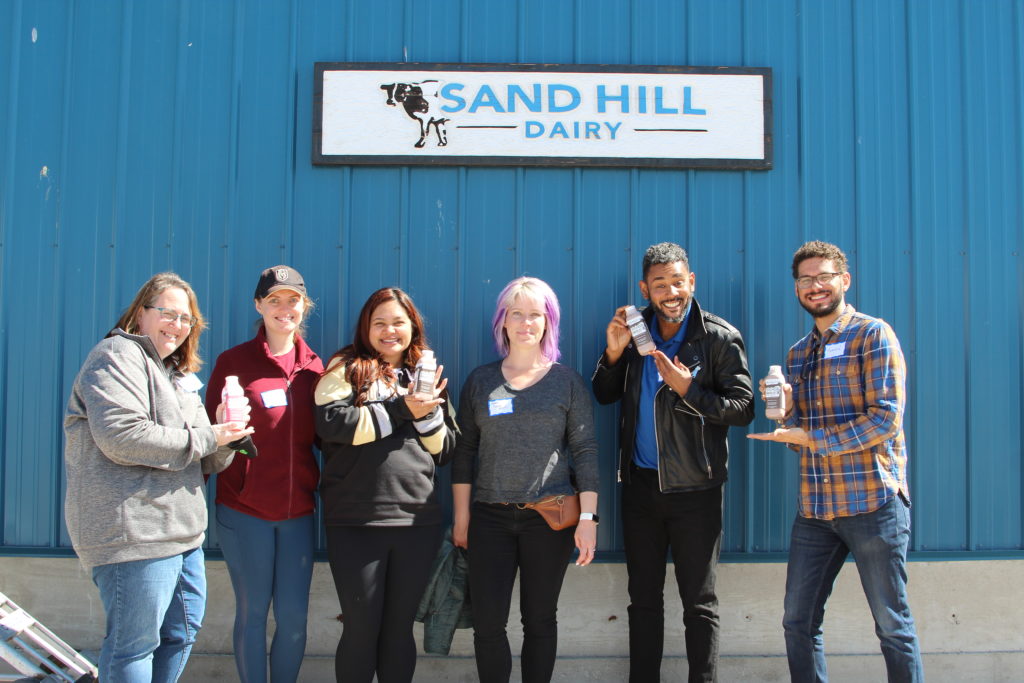
Growing a drought friendly crop in the desert
In Nevada’s desert, water is a precious resource. For Desert Oasis Teff and Grain founder John Getto and his business partner Dave, growing the Ethiopian grain was a natural switch from traditional wheat. High in fiber, capable of a higher yield with lower inputs and a shorter seed to harvest time, teff was ideally suited to the dry high desert Nevada climate. Desert Oasis Teff and Grain is now the leading producer of teff in the United States with no end in sight. Research has also shown that teff could be a drought tolerant forage for dairy cows, a critical consideration for all producers farming in a dry climate.
Policy that supports innovative crops and regenerative agriculture practices is critical for farmers and producers that are facing the impacts of a changing climate. For more information on mitigating the climate crisis through policy see: [INSERT BLOG POST]
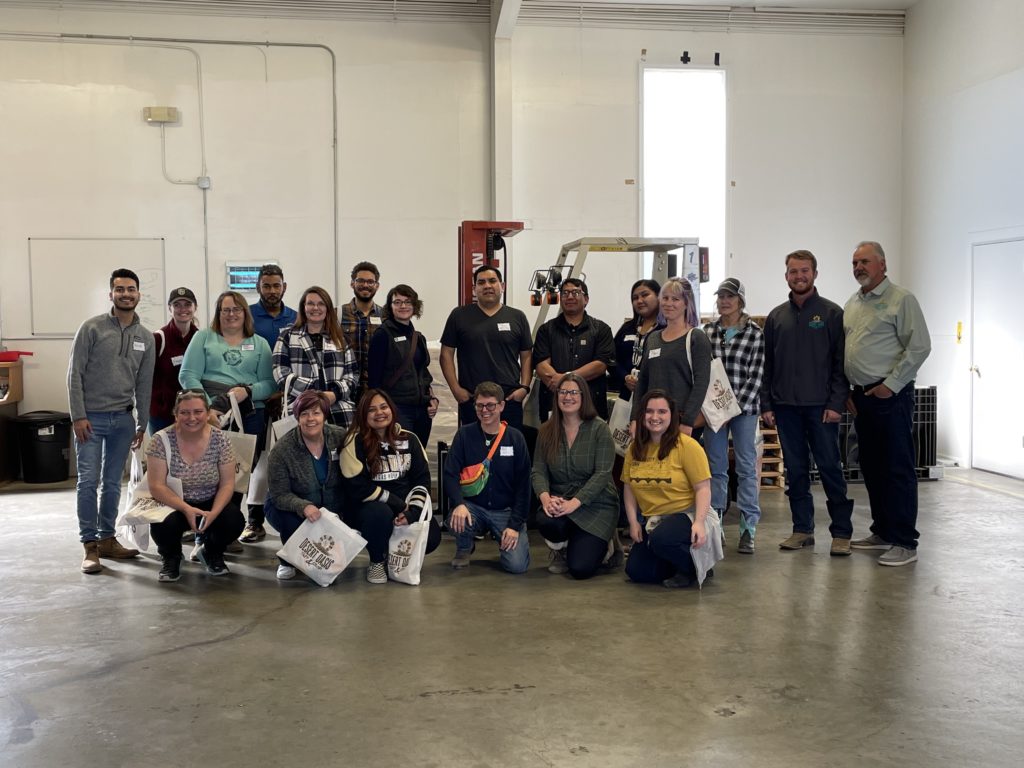
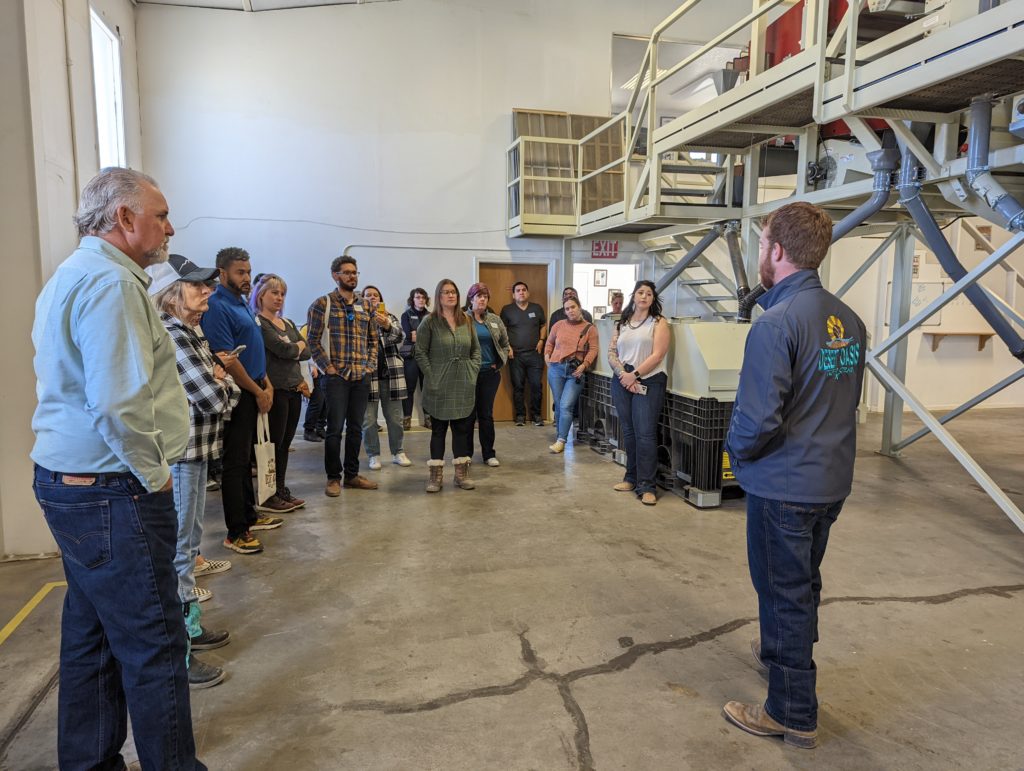
From field to distillery without leaving the farm
At the Frey Distillery outside of Fallon, “local agriculture” takes on a whole new meaning. Instead of bringing the grains for their award winning whiskey to the distillery, Frey brought the distillery to the farm. With all grain crops grown on the site of their distillery, Frey producers are able to control every part of the process while reducing the amount of fuel inputs required to transport grains long distances. Not only is this critical for reducing the impact of greenhouse gas emissions, it also keeps the jobs, money, and economic benefit of local production in the community.
Strong local agriculture production is one of the key factors in creating economic resilience in rural communities. When local farmers purchase seed and equipment from local businesses or employ members of the community, they are keeping more dollars in the community and sharing those dollars with other local businesses. This wealth sharing contributes to the vitality and economic health of our rural communities.
States can significantly increase demand for local food through procurement policies. These policies can take many forms for example, some procurement policies direct state run-agencies to prioritize the purchase of local food while other policies focus on expanding supplemental nutrition assistance (SNAP) use at local farmers markets. Many states implement a variety of policies that support the production and purchasing of local food while also increasing access to local food for communities. If you are a state legislator interested in implementing local procurement policies in your state reach out to us at [email protected]
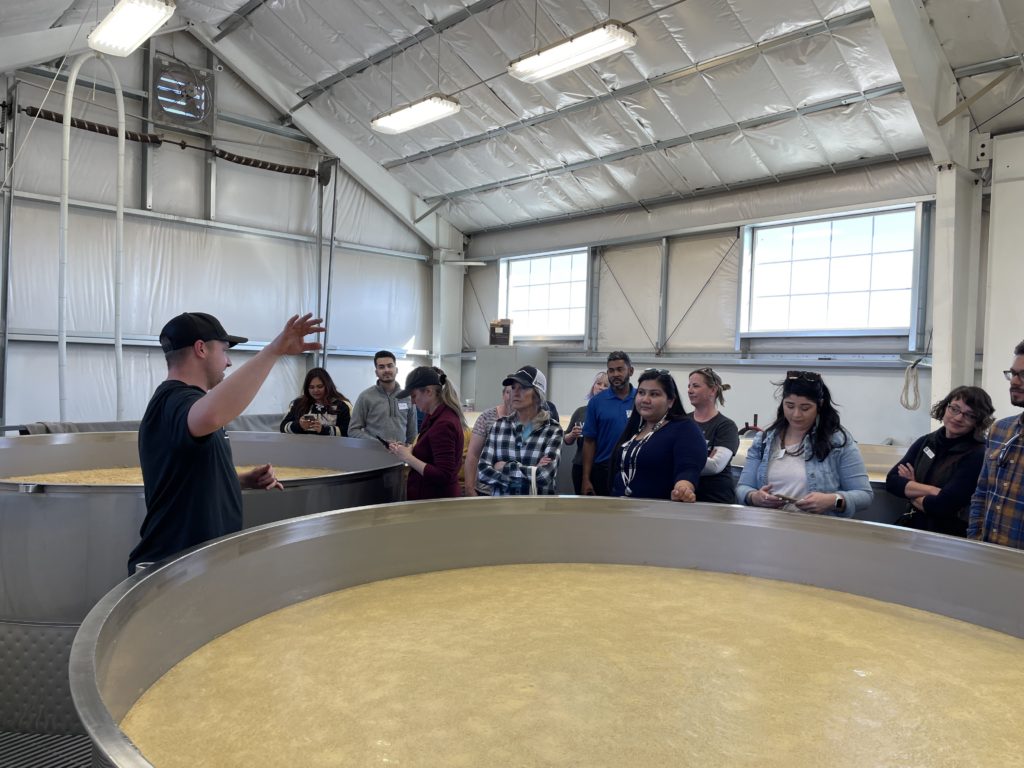
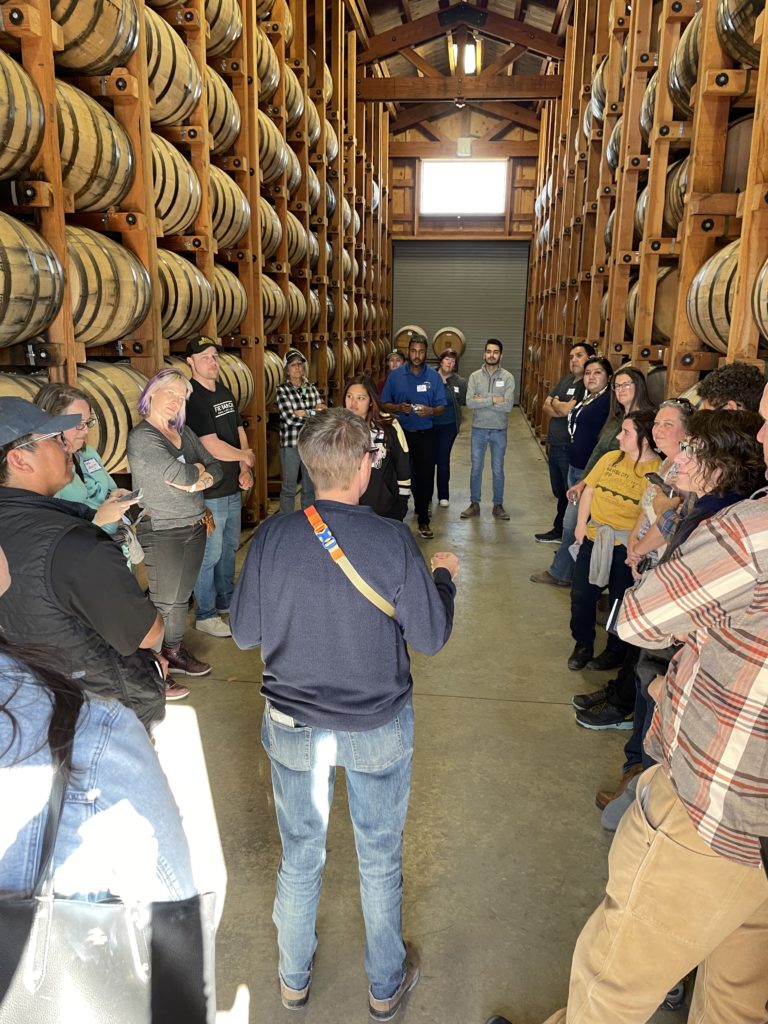
Feeding their Tribe through COVID and beyond
On the tour, special guests from the Walker River Paiute Tribe spoke with legislators about their food sovereignty program born out of the COVID-19 Pandemic that is feeding their community and engaging in traditional food and agriculture traditions. Walker River spokespeople discussed increased need for access to funding for tribal nations to bolster community services as well as the mutual benefit of healthy state-tribal relationships.
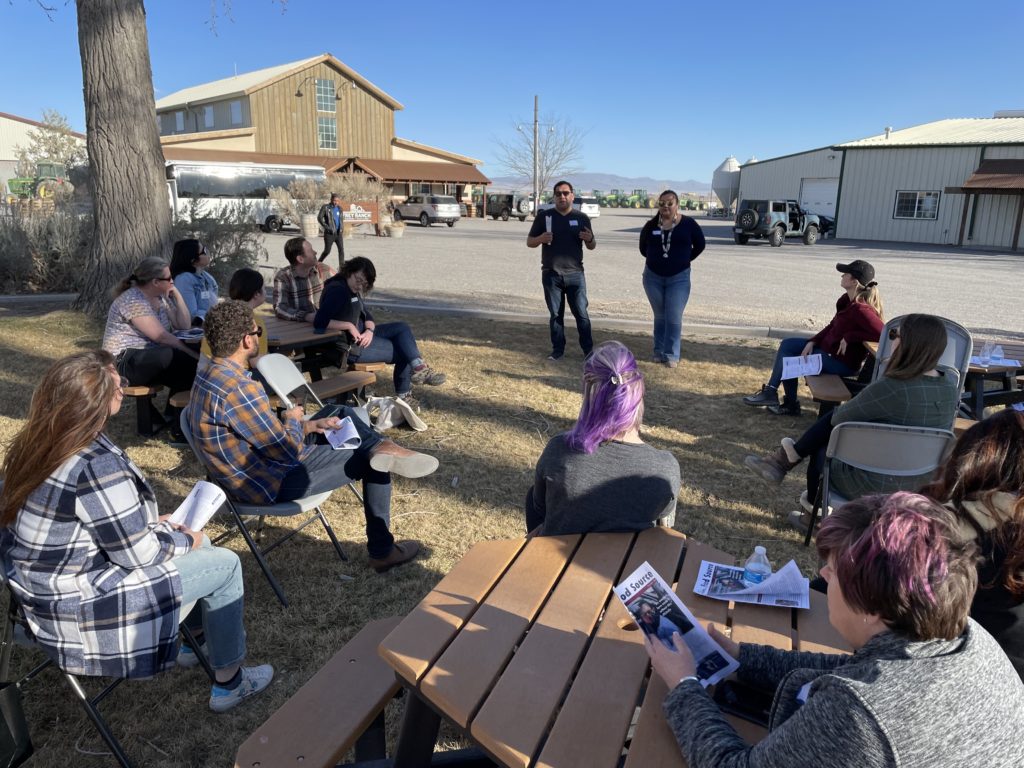
—————–
Walker River Paiute Tribe’s members were panelists on the SiX food sovereignty webinar. If you are a CROP member you can access the recording here. Not yet a CROP member? State legislators can sign up here.
Are you interested in connecting with local farmers and producers in your community? Connect with us at [email protected].

